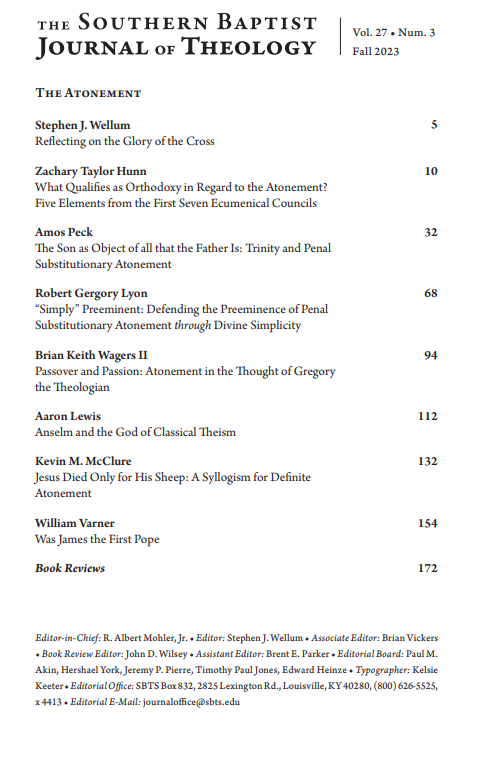A Brief Summary from Books At a Glance
by Steve West
Editor’s Note: This “Bonus” summary is of a recent article published in The Southern Baptist Journal of Theology (2023).
Summary
The debate about the extent of the atonement has been ongoing for centuries. Recently, From Heaven He Came and Sought Her (edited by David Gibson and Jonathan Gibson) is a major work arguing for definite atonement, while The Extent of the Atonement (David Allen) argues for unlimited atonement. Allen maintains that John Owen commits the negative inference fallacy by arguing that Christ died for his sheep, and so he did not die for those who are not his sheep. It is a logical fallacy to assert that because something is said to be true of Class A, it is not true of Class B. To avoid the negative inference fallacy, it has to be stated that the members of one class are the only ones who have the property in question. This article contends—against Allen—that a syllogism can be defended which asserts that: “Christ died only for his sheep/not all are his sheep/therefore, Christ did not die for all, but only his sheep.” The position of definite atonement is that Christ did not die for all, but rather he died for every person given to him by the Father.
Jesus’s speech in John 10 flows out of the incident in the previous chapter where he heals a man who was blind from birth. The religious leaders throw the man out of the synagogue for his testimony, which leads Jesus to discourse using the metaphor of a shepherd and his sheep. One of the vital descriptors of Christ’s sheep is that they are those for whom Jesus—the good shepherd—lays down his life. Jesus said to unbelieving Jews in 10:26 that they are not his sheep. If it can be demonstrated that Jesus only died for his sheep, then it follows that he did not die for the ones who are not his sheep. . . .
[To continue reading this summary, please see below....]The remainder of this article is premium content. Become a member to continue reading.
Already have an account? Sign In
Buy the books

THE SOUTHERN BAPTIST JOURNAL OF THEOLOGY, VOL. 27, NUM. 3